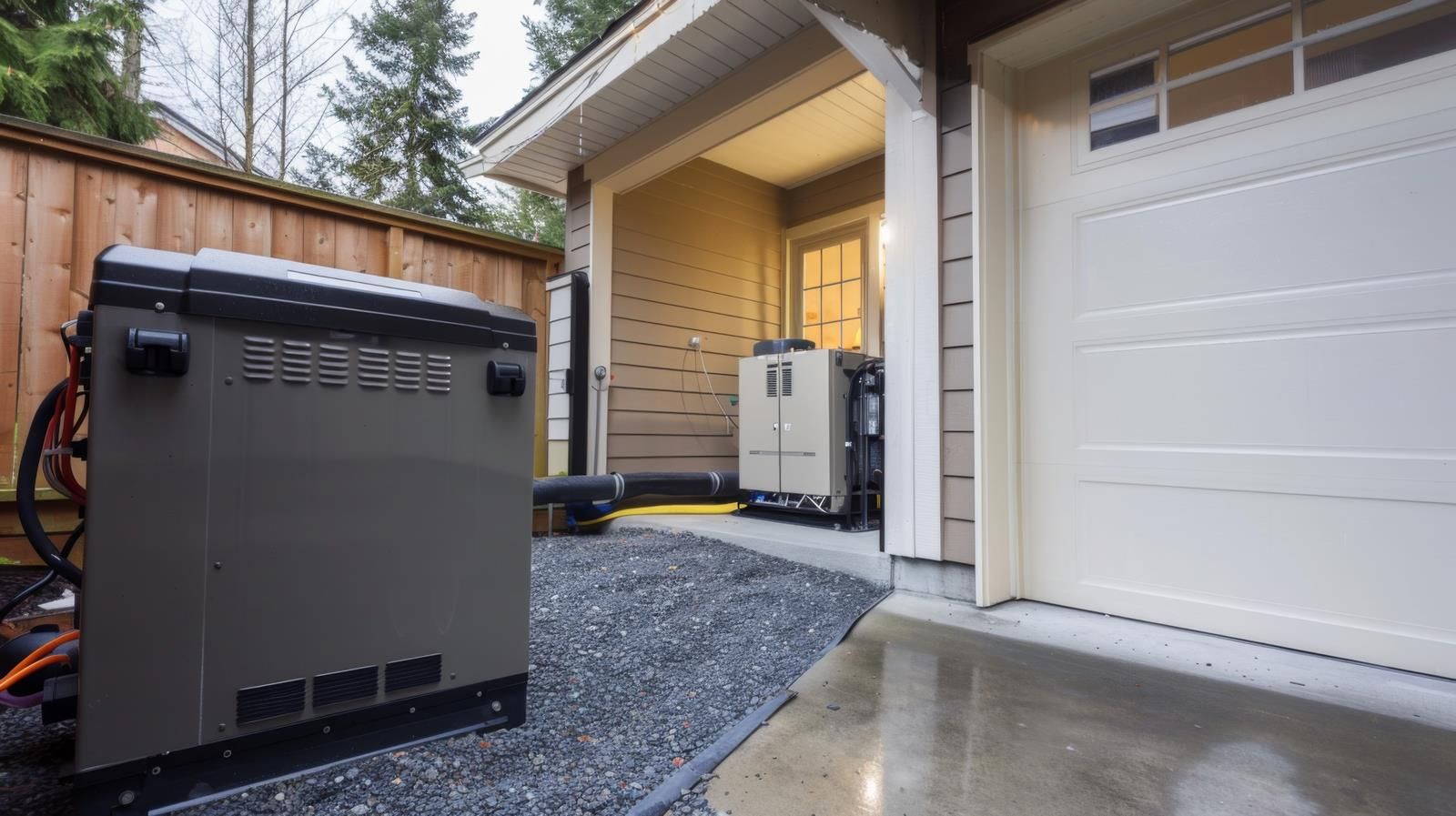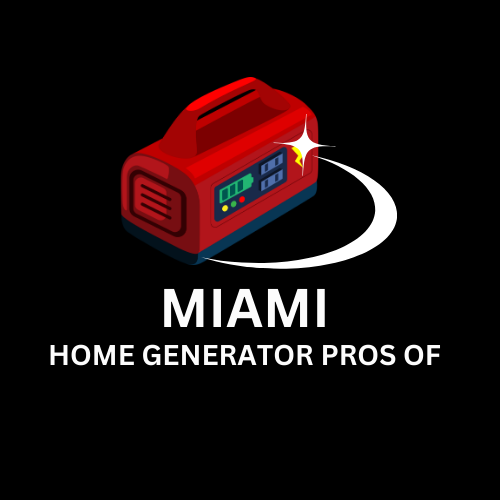Residential Generators in Miami FL
A residential generator is a valuable addition to any home, especially in places like Miami, FL, where power outages can occur due to storms or other issues. These generators provide a reliable backup power source, ensuring that your home remains functional and comfortable when the main power supply is disrupted.
A residential generator is a machine that converts mechanical energy into electrical energy to provide power to your home. When there's a power outage, the generator kicks in automatically or manually, depending on the type, to supply electricity to essential appliances and systems, such as refrigerators, air conditioning, and lighting.
Different Types
There are several types of residential generators, each designed to meet different needs and preferences. Standby generators are permanently installed outside your home and are connected to your electrical system. They automatically start up when the power goes out. Portable generators, on the other hand, are more versatile and can be moved around. They need to be manually started and plugged into the appliances you want to power. There are also inverter generators, which are known for their quiet operation and clean power output, making them ideal for sensitive electronics.
Key Features to Consider
When choosing a residential generator, there are several important features to consider. Power output is crucial; you need a generator that can handle the electrical load of your home. Look for models with automatic start capabilities, which can offer convenience and ensure that you have power as soon as the outage occurs. Fuel type is another consideration; generators can run on gasoline, diesel, propane, or natural gas, each with its own advantages. Additionally, consider the generator's noise level, especially if you live in a densely populated area where noise could be an issue.

Professional Installation
Proper installation of a residential generator is essential for its safe and efficient operation. It is recommended to have a professional install your generator to ensure that it is set up correctly and complies with local codes and regulations. A professional installer will also ensure that the generator is properly connected to your home’s electrical system and that all safety measures are in place.
Regular Maintenance
Like any mechanical equipment, residential generators require regular maintenance to ensure their reliability and longevity. This includes routine inspections, oil changes, and checking the fuel system. Regular maintenance helps to identify and address potential issues before they become major problems, ensuring that your generator will be ready to go when you need it most.
Safety Considerations
Safety is a key aspect of using a residential generator. Always follow the manufacturer’s guidelines for operation and maintenance. Generators should be placed in a well-ventilated area to prevent the buildup of harmful fumes. Never operate a generator indoors or in an enclosed space, as this can lead to carbon monoxide poisoning. Additionally, ensure that the generator is properly grounded and use it in accordance with local electrical codes.
Cost and Investment
The cost of a residential generator varies based on its type, power output, and features. Standby generators tend to be more expensive due to their installation and integration into your home’s electrical system, but they offer the convenience of automatic operation. Portable generators are generally less expensive but require manual setup and operation. It’s important to view the purchase of a generator as an investment in your home’s safety and functionality. Consider the long-term benefits and potential cost savings from avoiding spoiled food or damage caused by power outages.
Benefits of Having a Residential Generator
Owning a residential generator offers numerous benefits. The primary advantage is the peace of mind knowing that you will have power during outages. This is particularly valuable in areas prone to severe weather, where outages can be frequent and prolonged. A generator helps to keep your home’s essential systems running, such as heating and cooling, which is crucial for comfort and safety. It also protects against the potential loss of food and other perishables, and ensures that you can continue to use medical devices that require a steady power supply.
If you’re considering adding a
residential generator in Miami, FL, we’re here to help. Our team of professionals can guide you through the selection process, provide expert installation, and offer ongoing maintenance services. Contact us today to learn more about how a residential generator can benefit your home and to get started on ensuring that you’re prepared for any power outages.
Why Every Home Should Have a Backup Generator
In today's world, power outages have become more frequent due to various factors such as severe weather, technical failures, and grid overloads. These disruptions can lead to significant inconveniences, from spoiled food and disrupted routines to compromised safety and security. To combat these issues and ensure that your home remains functional during an outage, having a backup generator is an essential investment. This article explores why every home should consider having one.

Investing in a backup generator is a smart decision for safeguarding your home and ensuring your comfort and security during power outages. If you're ready to explore your options or need assistance with installation, our team is here to help.
Contact us today to discuss your needs, get expert advice, and take the first step towards a more secure and comfortable home. Don’t wait until the next outage—prepare now and enjoy the peace of mind that comes with reliable backup power.
Residential Generators: What You Need to Know About Fuel Types
In today’s world, having a reliable power source for your home is crucial. Whether you’re facing a power outage or simply want to ensure continuous power for your essential appliances, residential generators offer a practical solution. Understanding the different types of fuel used in these generators can help you make an informed decision. When selecting a residential generator, the fuel type is a significant consideration. Each fuel type comes with its own set of advantages and challenges. Here’s a breakdown of the most common fuel types used in residential generators:
Choosing the right fuel type for your residential generator is an important decision that affects both your budget and your power needs. If you’re unsure which fuel type is best for your situation, or if you need help with installation and maintenance, our team is here to assist you. Contact us today to discuss your options and find the perfect generator for your home. Our experts are ready to answer your questions and ensure you get a reliable power solution tailored to your needs.
